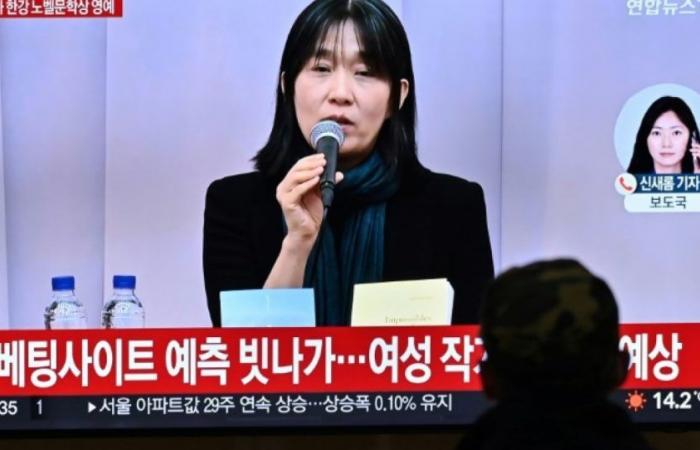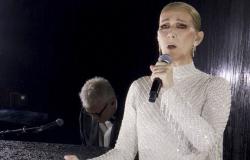The Nobel Prize for Literature was awarded Thursday to 53-year-old novelist Han Kang, the first South Korean to win the prestigious award.
Han Kang, who writes poems, short stories and novels in Korean, was rewarded “for her intense poetic prose which confronts historical trauma and exposes the fragility of human life”, explained the jury in a press release.
Alongside writing, she also devoted herself to art and music, which is reflected in all of her literary output.
“Han Kang’s work is characterized by this double exposure of pain, a correspondence between mental torment and physical torment, in close connection with Eastern thought,” said the Swedish Academy.
Largely dominated by writers from Western culture, the 2024 Nobel Prize in Literature rewards a writer from a region of the world other than Europe or North America.
“I am so surprised and honored,” Han Kang responded to the Nobel Foundation. She had just finished dinner with her son at her home in Seoul: “It was a peaceful evening.”
“I grew up with Korean literature, to which I feel very close. So I hope that this news will be pleasant for readers of Korean literature and for my friends, writers and others,” rejoiced the writer, who recommends, to people wishing to discover his work, to read his latest novel “Impossible Farewells” (2023).
The author, born November 27, 1970 in Gwangju, South Korea, has “a unique awareness of the links between the body and the soul, the living and the dead, and, through her poetic and experimental style, she is considered to be innovative in the field of contemporary prose,” Nobel committee president Anders Olsson told the press.
– Erotic exploitation –
Han Kang broke through internationally with his novel “The Vegetarian” (2007). Written in three parts, the book depicts the violent consequences of its protagonist Yeong-hye’s refusal to eat meat, leading to her brutal rejection by those around her.
The author tells in this novel how Yeong-hye will be exploited “erotically” by her brother-in-law, a video artist, who develops an obsession with her “passive body”, notes the Academy.
The reader then follows the main character’s gradual descent into a psychosis which will lead her to psychiatric internment.
“There is a continuity in the themes covered which is quite remarkable, but at the same time an enormous stylistic variation which makes each book a new aspect or a new expression of these central themes”, analyzed Anna-Karina Palm, member of the Academy.
– “Blacklist” –
She is also a committed woman.
Han Kang was on a “blacklist” of nearly 10,000 cultural figures in South Korea accused of criticizing President Park Geun-hye, in power between 2013 and 2017.
Several people close to those in power have been accused of having wanted to deprive these artists of any public aid and any private financing, as well as of having placed them under surveillance.
Many of his novels have been translated into French, such as “Pars, le vent se leva” (2014), “He who returns” (2016), “Greek lessons” (2017) and Impossible adieux (2023).
She won the Medici Prize for a foreign novel for this last title in November 2023. A new novel awarded the Guimet Prize for Asian Literature in February.
Published in August by Grasset, “Impossible Farewells” deals with a difficult subject, the massacre in 1948-1949 of 30,000 people on the island of Jeju, in the south of South Korea.
The president of the jury, the journalist Laure Adler, had motivated this choice “because of the sobriety and effectiveness of her writing, its modernity and the universality of the theme of her subject”.
Han Kang is the first South Korean to win the Nobel Prize for Literature.
The only other South Korean to win a Nobel Prize – for peace – dates back to the year 2000, when former President (from 1998 to 2003) Kim Dae-Jung was crowned for “his work for peace and reconciliation with North Korea.
Since its creation, the Nobel Prize in Literature has been dominated by a Western and masculine vision: out of a total of 121 laureates, only 18 women have won the prize. And a minority of award-winning authors use languages spoken in Asia, Africa or the Middle East, outside the English, French, Scandinavian, German, Slavic, Spanish or Italian domains.
Only one Arabic-speaking author was distinguished – Naguib Mahfouz, an Egyptian, in 1988 – compared to 16 French-speaking authors.
Last year, Norwegian playwright Jon Fosse won the prestigious Belles Lettres award.






